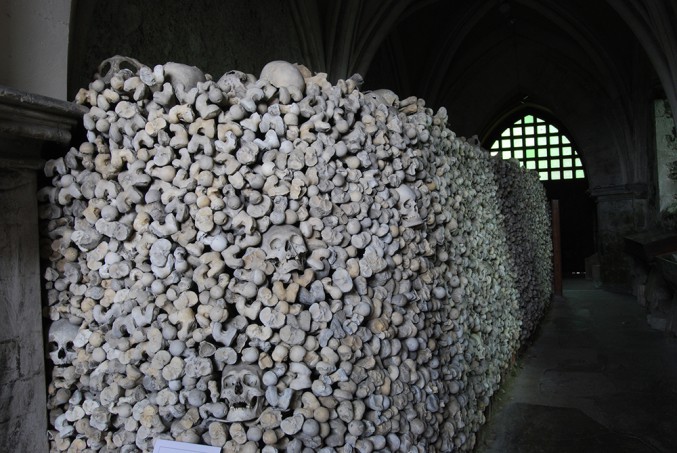Among the initiatives at the Centre I thought I would mention this week is Drs Lesley Hardy and Mike Bintley’s community project on ‘Finding Eanswith’, which is a follow-up to earlier work at Folkestone involving the local community, Canterbury Christ Church and Canterbury Archaeological Trust. In addition, Dr Martin Watts is busy organising the study day on Richborough and is also involved in a project on Whitstable Maritime. Furthermore, there is a move afoot to think about producing some-sort of digital web project using the idea of journeying across Kent. This latter is very much at the initial stage but is potentially very exciting – a sort of inter-active Kent Historical Atlas which would be useful for many groups, from school projects to those wanting to know about their particular part of the county.

Photo: Imogen Corrigan
It is interesting that these potentially exciting ideas at the Centre have come in the same week that the last of the University of Kent’s part-time Theory and Practice of Local History degree students graduated at Canterbury Cathedral. I was very privileged to be involved in teaching this final group because they were all exceedingly hard-working, diligent students who managed to juggle family and work commitments as well as completing assignments, including a final dissertation on a topic of their choice that involved the use of primary sources. Dr Stephen Hipkin from Canterbury Christ Church was the external examiner, and, as an expert on early modern Kent, it was great to hear that he recognised the quality of their research.
The number of local history and archaeology organisations across the Kent would seem to suggest that there is a definite appetite for such courses, although whether at undergraduate or postgraduate level is perhaps less clear. Not all of these groups have active researchers, but there are people ‘digging’ in the archives and in the ground in many places, as shown by the grants given by Kent Archaeological Society and highlighted in the most recent newsletter of this pro-active society. Indeed as anyone who has read Archaeologia Cantiana will vouch, such work has been a major part of KAS’s remit for over 150 years.
Moreover the senior officers of KAS over the decades have recognised the value of working collaboratively with a wide range of other groups, from the Trust for Thanet Archaeology to individual parishes, to provide joint workshops, study days and conferences. For example the KAS churches committee has held such study days at several churches across the county from ‘Living through the Reformation’ at St Dunstan’s, Canterbury to an exploration of the 19th-century Oxford Movement in Folkestone, and an examination of a medieval parish community at Hythe. In each of these cases those leading the day have shown participants what can be understood by looking in detail at the building and by looking at primary sources. For the latter this has involved bringing in a further partner – Canterbury Cathedral Archives and Library, thereby bringing the treasures held there to a wider audience than normal. The next study day is in the early stages of planning and will involve Rochester Cathedral.
KAS has also undertaken joint ventures with the two universities in Canterbury, and these links will hopefully go from strength to strength to benefit all concerned. Perhaps a good example of this is KAS’s sponsorship of the Medieval Canterbury Weekend because not only will this benefit people in Kent, but it will draw in people from across the country. To be able to showcase Kentish research, resources and educational establishments is important because the county is and always has been significant strategically, as anyone who got caught up in ‘Operation Stack’ last summer would presumably agree. And amongst the events planned for the Weekend that may be said to draw on these three elements are Professor Richard Gameson’s lecture of the St Augustine’s Gospels, Dr Paul Bennett’s guided visit to the Poor Priests’ Hospital – 13th-century gem of a stone building, and Professor Peter Brown’s exploration of the late medieval literature associated with Canterbury, for there is far more than Chaucer’s Canterbury Tales. Moreover, and this is where I will finish this week, next year will also bring the 950-year anniversary of the Battle of Hastings, and, even though this was not in Kent, it is presumably no accident that Duke William didn’t immediately head for London but instead turned east and marched through Kent, strengthening or initiating what would become the three great royal castles of Dover, Canterbury and Rochester.
 Centre for Kent History and Heritage
Centre for Kent History and Heritage Matthew Crockatt
Matthew Crockatt 760
760

